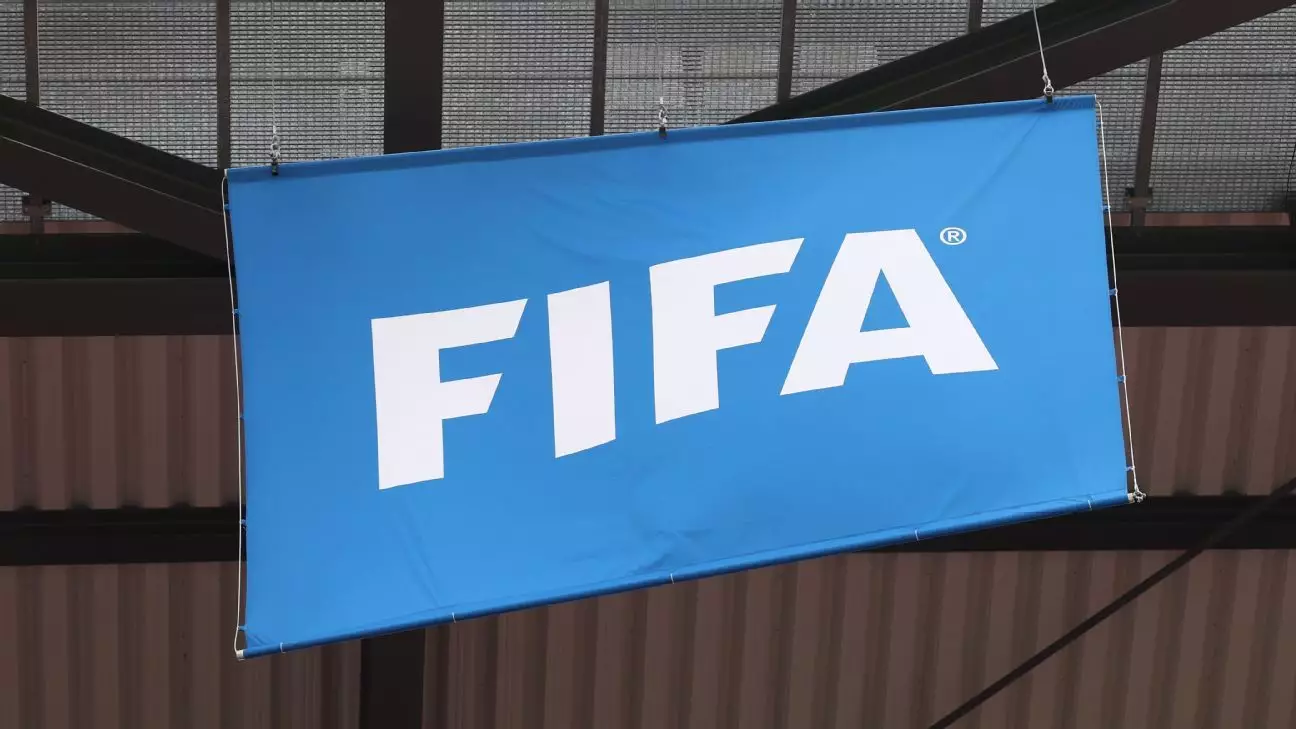In a pivotal moment for global football, stakeholders have rallied together to challenge the governing body’s dominance over the international football calendar. On Monday, European football leaders, along with FIFPRO, the international representative of professional football players, filed an antitrust lawsuit against FIFA in Brussels. This unprecedented move signals a significant shift in the dynamics between FIFA and the leagues representing thousands of players. The essence of this conflict revolves around FIFA’s alleged prioritization of its interests as both tournament organizer and regulator, leading to concerns about player welfare and an increasingly congested match schedule.
The lawsuit comes at a time when the landscape of football has seen rapid changes, particularly focused on the mental and physical toll that long seasons impose on players. Javier Tebas, president of LaLiga, characterized this as “one of the most important days in football,” drawing parallels to the backlash following the proposed European Super League. Premier League Chief Executive Richard Masters echoed the sentiment, noting that football has reached a “tipping point.” This outcry isn’t merely about schedule alterations; it encapsulates a deeper concern for player health and the sustainability of the sport.
Despite LaLiga not being a member of the European Leagues, its involvement in the lawsuit emphasizes the collective frustration brewing across leagues and player unions. Players have found their appeals to FIFA largely ignored, as FIFPRO claims its attempts at dialogue have been met with silence. Particularly contentious is FIFA’s plan to increase the frequency of its Club World Cup, which FUFO argues exacerbates an already overloaded calendar. As discussions on player welfare gain urgency, sentiments of a strike become increasingly tangible, signaling just how dire the situation has become.
The current football calendar, which FIFA has defended as essential for the health of international football, has drawn criticism for allegedly neglecting the needs of players. FIFA asserts that its calendar, ratified by multiple stakeholders, is crucial for maintaining the balance between international and club competitions. However, industry voices, including those from FIFPRO, argue that while FIFA claims inclusiveness, the reality is an overarching control that undermines this very principle.
FIFPRO’s data reveals alarming trends: a staggering 72% of players support a reduction in the football calendar, alongside a pressing need for regulated rest periods. Moreover, statistics indicating that 30% of players experienced sequences of six consecutive matches raise pertinent questions about the strain on athlete endurance. The argument that the number of games played hasn’t substantially escalated over the decades, a defense mounted by FIFA, disregards the amplifying intensity and physical demands of contemporary football.
This lawsuit represents not merely a legal challenge against FIFA but a systemic critique of how football is governed. The combined powers of FIFPRO and the European Leagues present a formidable challenge in the courts, echoing broader calls for reform in the global sporting arena. The ramifications of favoring FIFA’s agenda over player welfare could ripple throughout the sport, affecting everything from grassroots levels to the elite competitions.
The implications of the lawsuit extend beyond immediate reforms to the international match calendar; they could play a crucial role in shaping the future of player rights. Domestic unions in England, France, and Italy have previously taken action, seeking legal recognition of players’ rights to adequate rest. A concerted push for a mandated rest period of three to four weeks would not only allow for recuperation but align the schedule with health standards that sustain players’ long-term careers.
As football wrestles with its identity in the modern world, the question remains: how will FIFA respond? At a time when the sport’s most valuable asset—its players—are advocating for change, the governing body faces pressures from both legal and public relations fronts. The growing awareness among players, fans, and clubs signals a demand for accountability that cannot be ignored.
The antitrust lawsuit against FIFA marks a crucial turning point for football. By challenging the existing power dynamics, stakeholders aim to foster an environment where player welfare takes precedence, ensuring the future of football is not only financially viable but also sustainable for the athletes who drive it. As decisions that impact millions loom, one question is clear: will FIFA adapt to these new realities, or will it continue to navigate the tempestuous waters of change without addressing its fundamental shortcomings?
